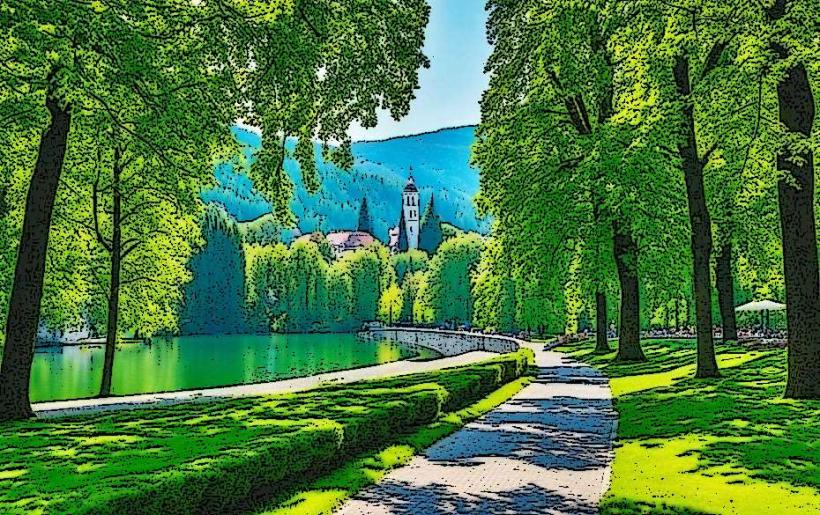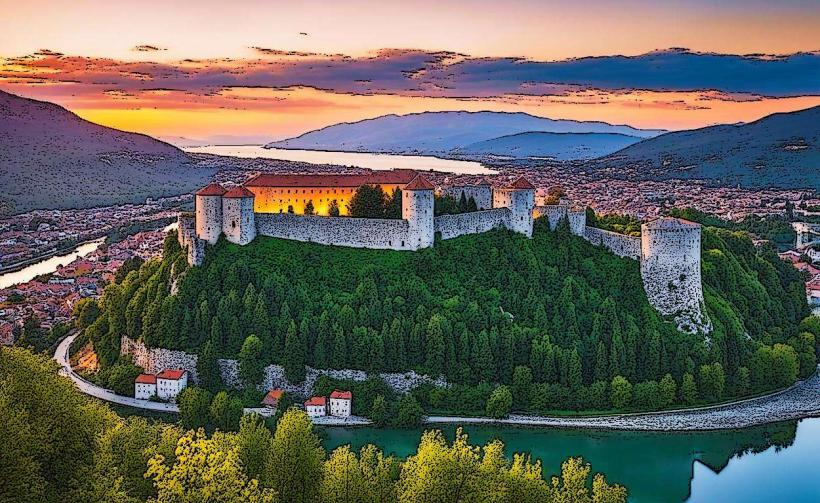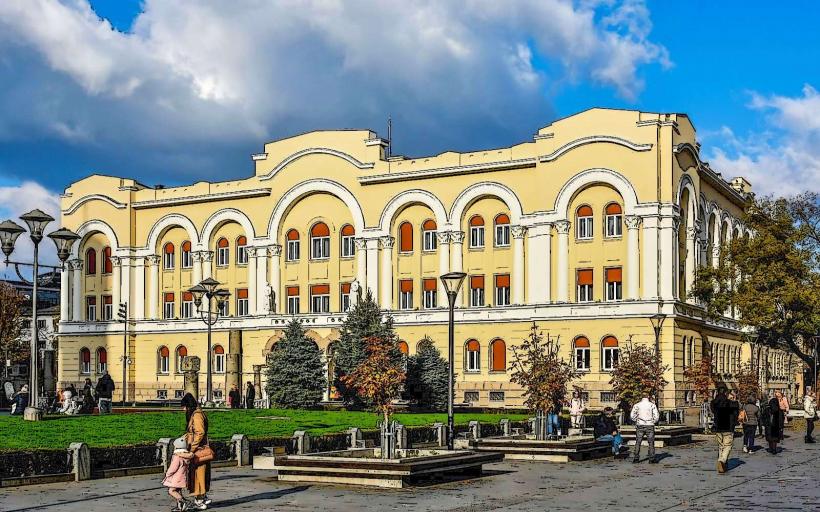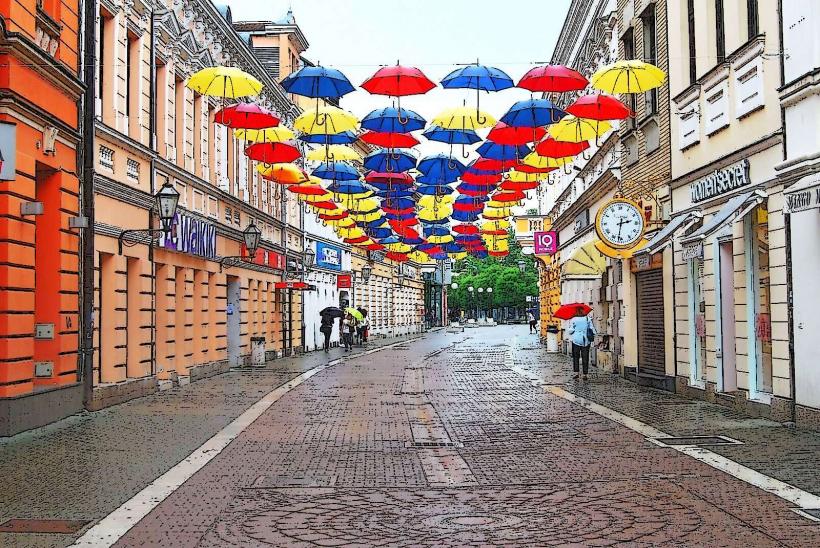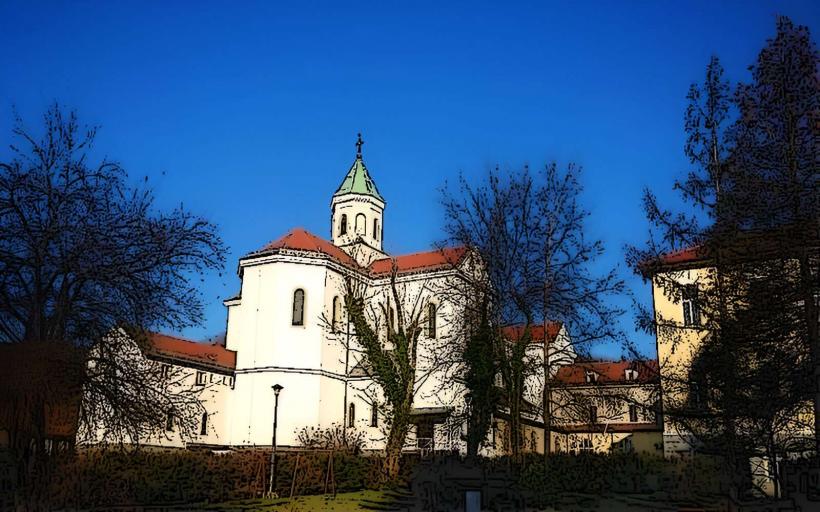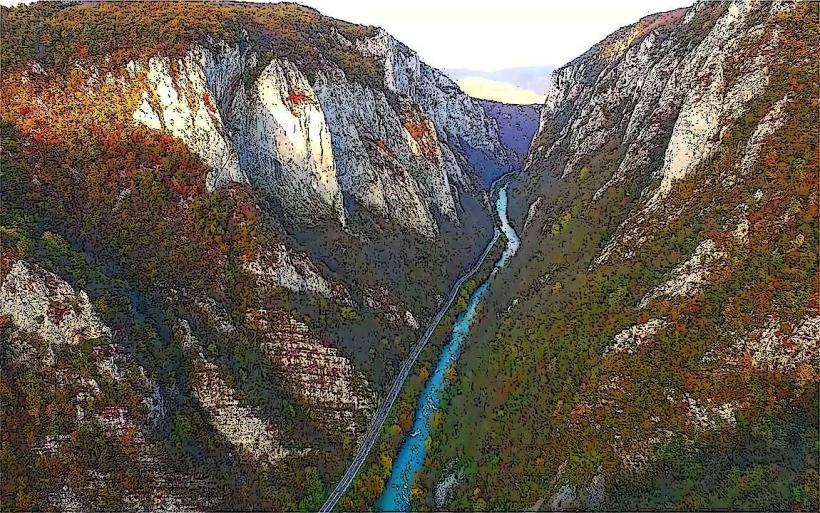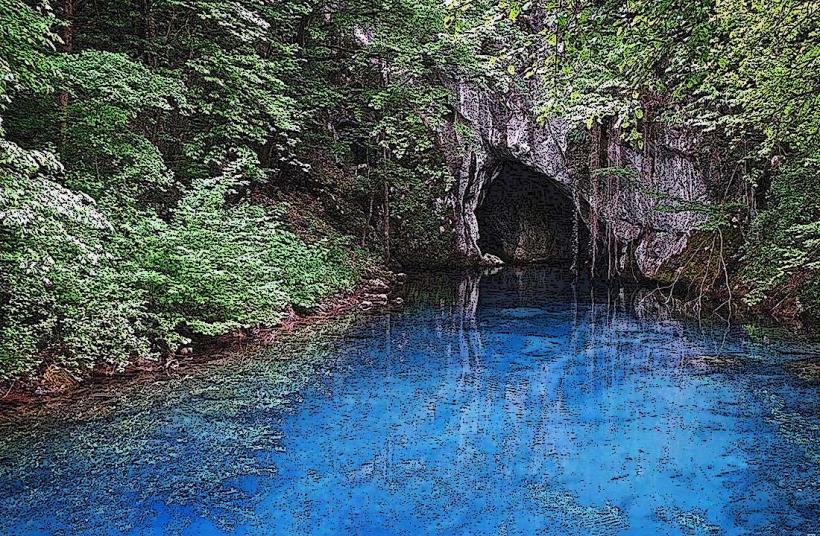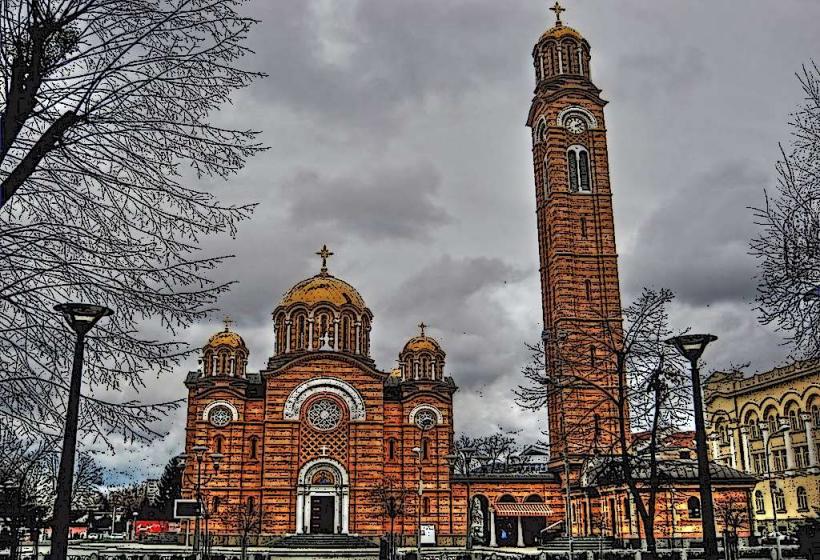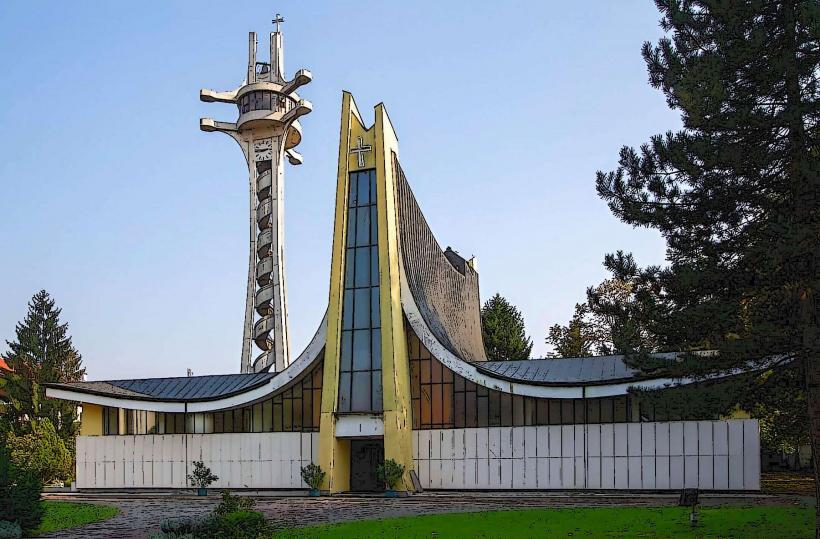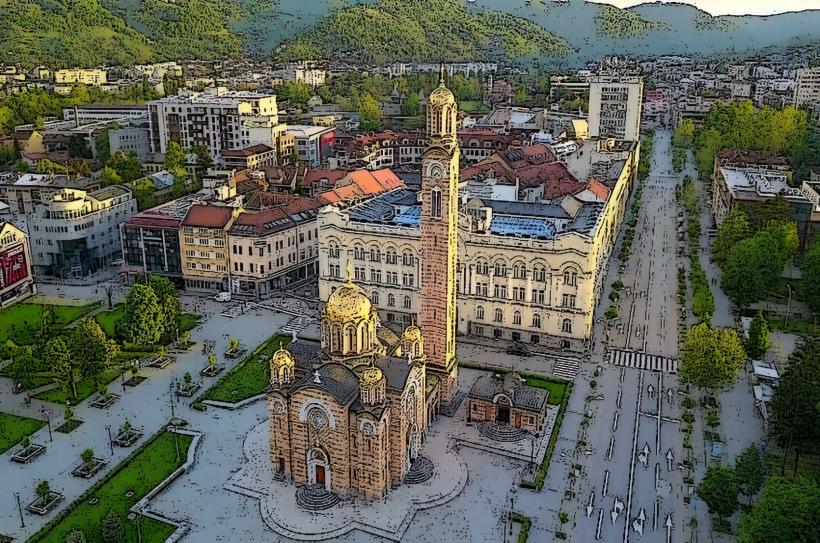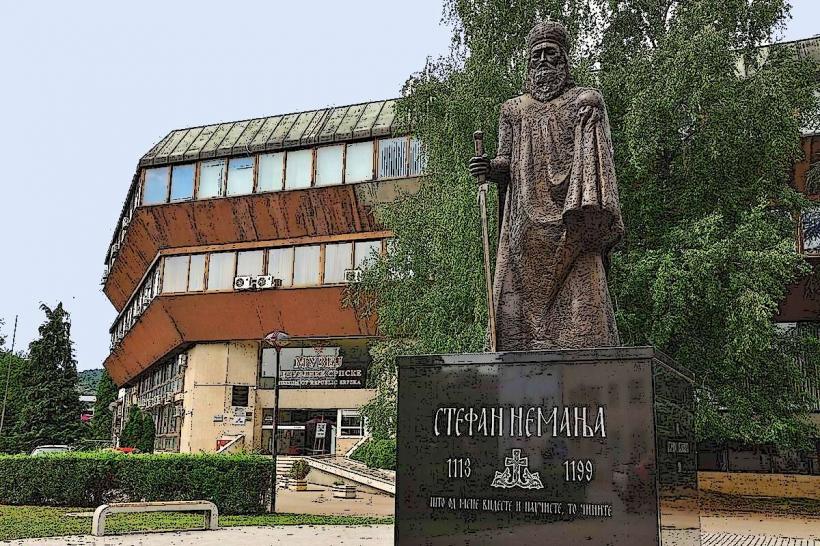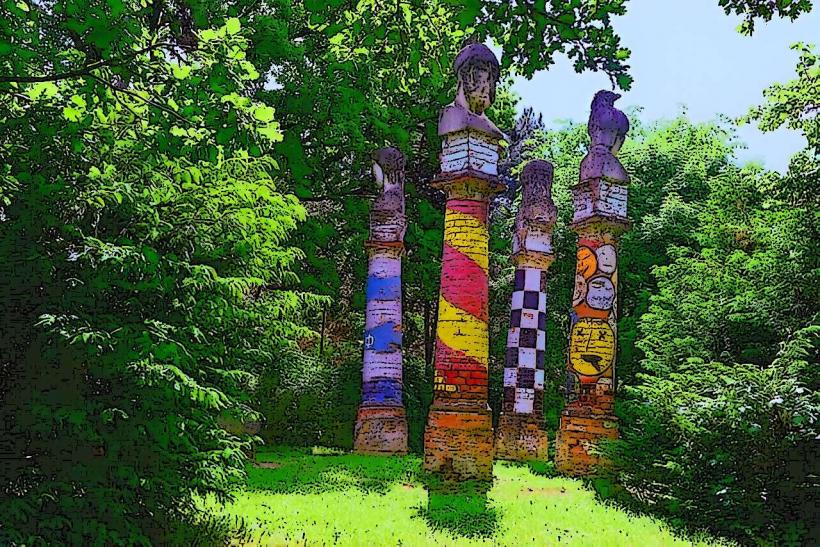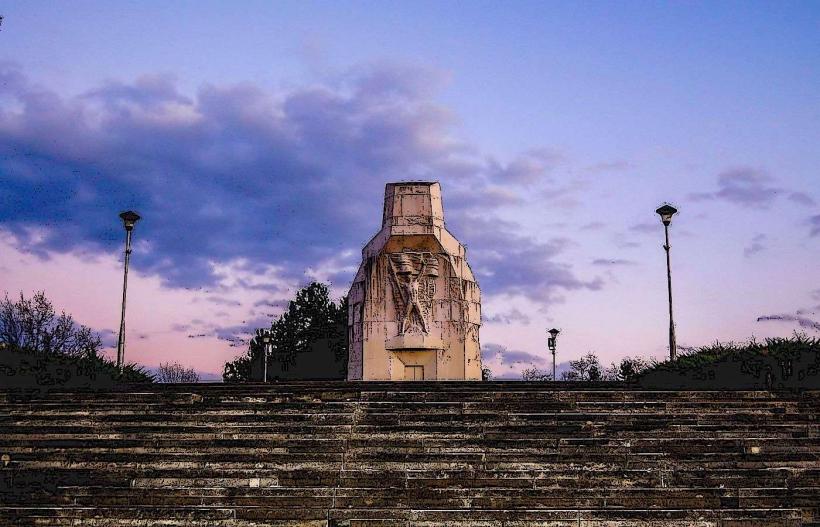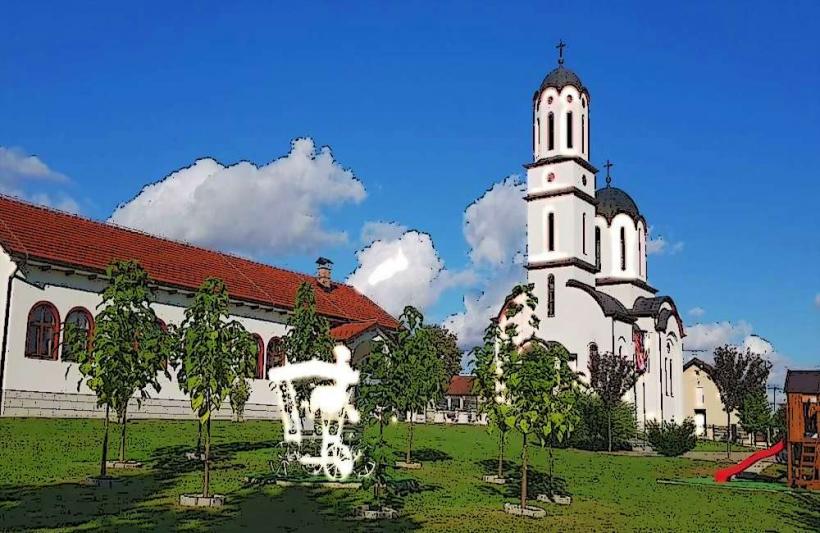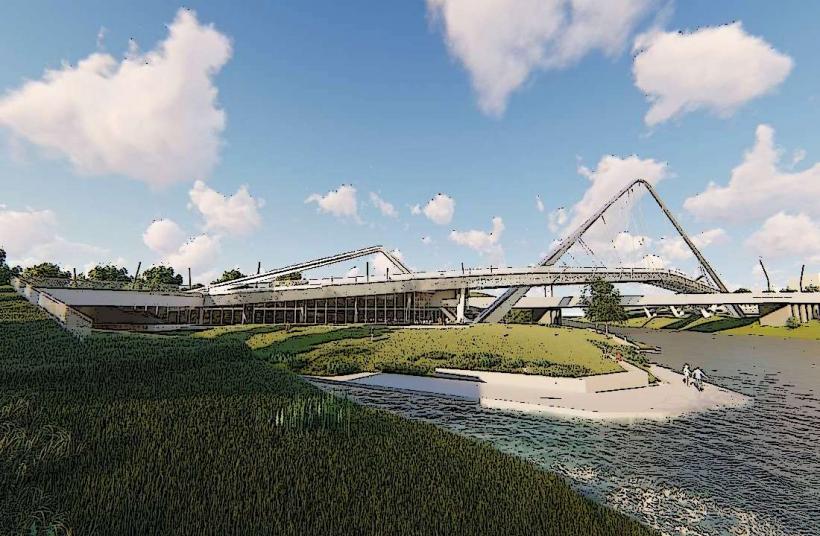Information
Landmark: Ferhadija MosqueCity: Banja Luka
Country: Bosnia and Herzegovina
Continent: Europe
Ferhadija Mosque, Banja Luka, Bosnia and Herzegovina, Europe
The Ferhadija Mosque (Ferhat Pasha Mosque) is a 16th-century Ottoman architectural masterpiece and a UNESCO-recognized world monument. It serves as the central religious site for the Muslim community in Banja Luka and is considered one of the finest examples of Ottoman Islamic architecture in Europe.
Visual Characteristics
The mosque is a classical single-domed structure built in the "Istanbul style." It features a 43-meter tall minaret and a main dome rising 18 meters, supported by four massive stone pillars. The exterior is constructed from high-quality local limestone, while the interior is decorated with intricate Arabesque wall paintings, floral motifs, and detailed calligraphy. The complex includes three small mausoleums (turbes) in the courtyard and a traditional ritual fountain (šadrvan).
Location & Access Logistics
Address: Kralja Petra I Karađorđevića, Banja Luka 78000.
Access: Located at the southern edge of the city center, approximately 200 meters west of the Kastel Fortress.
Transit: Directly accessible via the city's main North-South bus corridor. The nearest stop is "Kastel" or "Ferhadija."
Parking: Limited street parking is available on adjacent side streets. Larger public lots are located at the nearby City Market (Tržnica).
Historical & Ecological Origin
Commissioned by Ferhat-pasha Sokolović, the first Sanjak-bey of Bosnia, the mosque was completed in 1579. It was allegedly funded by the ransom money paid by the Austrian General Auersperg for his son’s release. The structure survived centuries of conflict until it was systematically demolished by explosives on May 7, 1993, during the Bosnian War. A meticulous 15-year reconstruction project used original stone fragments recovered from the river and local quarries, and the mosque officially reopened on May 7, 2016.
Key Highlights & Activities
The Interior: Observation of the restored mihrab (prayer niche) and minbar (pulpit), which were reconstructed using fragments of the original 16th-century stone.
The Courtyard: Visiting the tombs of Ferhat-pasha and his relatives, located within the decorative turbes.
Night Viewing: The mosque and minaret are illuminated at night, highlighting the precision of the stone masonry.
Infrastructure & Amenities
The mosque is an active place of worship; visitors are welcome outside of prayer times. Modest dress is required (shoulders and knees covered; women are typically asked to wear a headscarf, often provided at the entrance). The surrounding area is well-serviced with cafes and traditional restaurants. 4G/5G cellular signal is excellent.
Best Time to Visit
The mosque is open daily between the five prayer times. For photography, the exterior is best captured in the early morning or during the "blue hour" just after sunset when the architectural lighting is active. Visitors should avoid the midday period on Fridays due to the weekly congregational prayer (Jumu'ah).
Facts & Legends
Legend states that Ferhat-pasha imprisoned the three architects inside the minaret upon completion to ensure they could never build anything more beautiful elsewhere; they reportedly grew wings and flew away. May 7th, the anniversary of its destruction, is now officially observed as the "Day of the Mosques" in Bosnia and Herzegovina.
Nearby Landmarks
Kastel Fortress – 0.2km East
Arnaudija Mosque – 0.4km Northwest
Banja Luka City Market (Tržnica) – 0.3km East
Gospodska Street – 0.7km North
Safikada's Grave – 0.1km East

